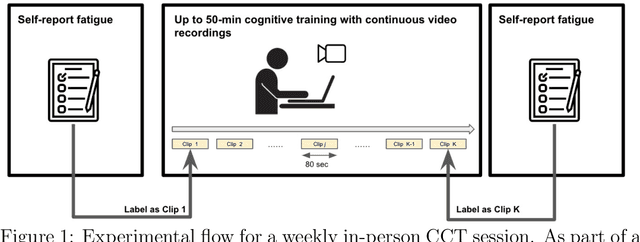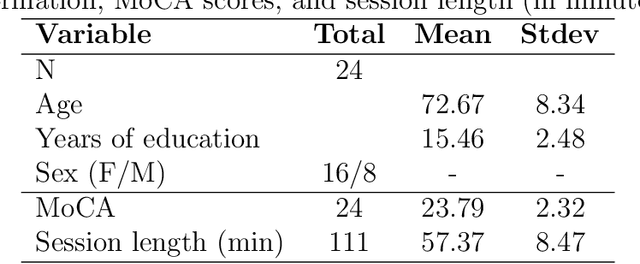Recurrent Transformer Encoders for Vision-based Estimation of Fatigue and Engagement in Cognitive Training Sessions
Paper and Code
Apr 24, 2023



The effectiveness of computerized cognitive training in slowing cognitive decline and brain aging in dementia is often limited by the engagement of participants in the training. Monitoring older users' real-time engagement in domains of attention, motivation, and affect is crucial to understanding the overall effectiveness of such training. In this paper, we propose to predict engagement, quantified via an established mental fatigue measure assessing users' perceived attention, motivation, and affect throughout computerized cognitive training sessions, in older adults with mild cognitive impairment (MCI), by monitoring their real-time video-recorded facial gestures in training sessions. To achieve the goal, we used computer vision, analyzing video frames every 5 seconds to optimize the balance between information retention and data size, and developed a novel Recurrent Video Transformer (RVT). Our RVT model, which combines a clip-wise transformer encoder module and a session-wise Recurrent Neural Network (RNN) classifier, achieved the highest balanced accuracy, F1 score, and precision compared to other state-of-the-art models for both detecting mental fatigue/disengagement cases (binary classification) and rating the level of mental fatigue (multi-class classification). By leveraging dynamic temporal information, the RVT model demonstrates the potential to accurately predict engagement among computerized cognitive training users, which lays the foundation for future work to modulate the level of engagement in computerized cognitive training interventions. The code will be released.
 Add to Chrome
Add to Chrome Add to Firefox
Add to Firefox Add to Edge
Add to Edge